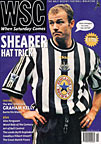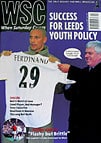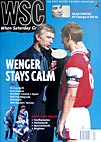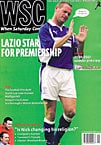 Mike Ticher talks to Graham Kelly about the formation of the Premier League, England's World Cup bid and the possibility of a future breakaway
Mike Ticher talks to Graham Kelly about the formation of the Premier League, England's World Cup bid and the possibility of a future breakaway
When the Premier League began, you maintained it would benefit football as a whole. How successful has it been?
I think in two respects it’s been very successful. Firstly, commercially. The Premier League wasn’t set up in exactly the way that I envisaged at the start. We didn’t set up the Premier League within the structure of the FA, it was set up as an autonomous company, with its own board of directors and, not unnaturally, it was jealous of its own commercial properties. So to that extent the pattern isn’t as we envisaged. But nonetheless, helped by other factors, such as the Taylor Report and the emergence of satellite television, commercially the FA Premier League, standing alone, has been spectacularly successful. The second respect is the impetus it gave to the development of players. We argued for a number of years about getting the best young players more time with the best coaches, without a great deal of success. The Football League tended to operate at the pace of the slowest club rather than the fastest. Setting up the Premier League has led indirectly to the formation of the academies, and in time, hopefully, we will see more good English players coming through.
Read more…
 As Saltergate falls into disrepair, Chesterfield risk going under. Jonathan Westwood reports
As Saltergate falls into disrepair, Chesterfield risk going under. Jonathan Westwood reports

